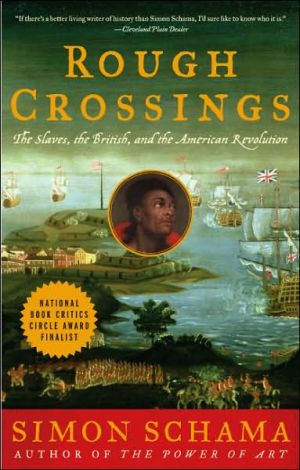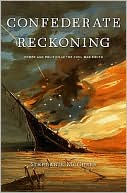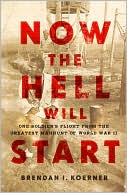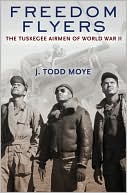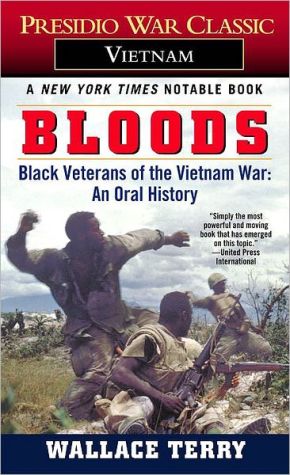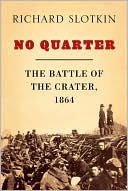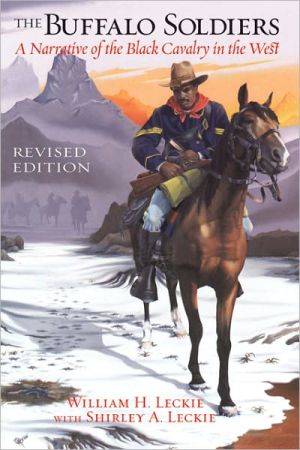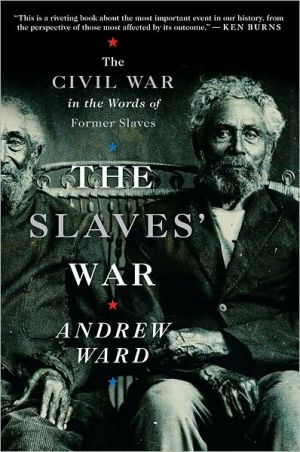Rough Crossings: The Slaves, the British, and the American Revolution
If you were black in America at the start of the Revolutionary War, which side would you want to win?\ When the last British governor of Virginia declared that any rebel-owned slave who escaped and served the king would be emancipated, tens of thousands of slaves fled from farms, plantations, and cities to try to reach the British camp. A military strategy originally designed to break the plantations of the American South had unleashed one of the great exoduses in U.S. history. With...
Search in google:
Rough Crossings turns on a single huge question: if you were black in America at the start of the Revolutionary War, whom would you want to win? In response to a declaration by the last governor of Virginia that any rebel-owned slave who escaped and served the King would be emancipated, tens of thousands of slaves -- Americans who clung to the sentimental notion of British freedom -- escaped from farms, plantations and cities to try to reach the British camp. This mass movement lasted as long as the war did, and a military strategy originally designed to break the plantations of the American South had unleashed one of the great exoduses in American history. With powerfully vivid storytelling, Schama details the odyssey of the escaped blacks through the fires of war and the terror of potential recapture at the war's end, into inhospitable Nova Scotia, where thousands who had served the Crown were betrayed and, in a little-known hegira of the slave epic, sent across the broad, stormy ocean to Sierra Leone. The New York Times - William GrimesIn Rough Crossings, the British historian Simon Schama offers an impassioned account of the war waged by black Americans against their former masters, and, in the aftermath of defeat, their long struggle to obtain justice from the British, who had promised liberty and land.
Rough Crossings\ The Slaves, the British, and the American RevolutionChapter One\ Ten years after the surrender of George III's army to General Washington at Yorktown, British Freedom was hanging on in North America. Along with a few hundred other souls — Scipio Yearman, Phoebe Barrett, Jeremiah Piggie and Smart Feller among them — he was scratching a living from the stingy soil around Preston, a few miles northeast of Halifax, Nova Scotia.1\ Like most of the Preston people, British Freedom was black and had come from a warmer place. Now he was a hardscrabbler stuck in a wind-whipped corner of the world between the blue spruce forest and the sea. But he was luckier than most. British Freedom had title to forty acres, and another one and a half of what the lawyers' clerks in Halifax were pleased to call a "town lot."2 It didn't look like much of a town, though, just a dirt clearing with rough cabins at the centre and a few chickens strutting around and maybe a mud-caked hog or two. Some of the people who had managed to get a team of oxen to clear the land of bald grey rocks grew patches of beans and corn and cabbages, which they carted to market in Halifax along with building lumber. But even those who prospered — by Preston standards — took themselves off every so often into the wilderness to shoot some birch partridge, or tried their luck on the saltwater ponds south of the village.3\ What were they doing there? Not just surviving. British Freedom and the rest of the villagers were clinging to more than a scrap of Nova Scotia; they were clinging to a promise.Some of them even had that promise printed and signed by officers of the British army on behalf of the king himself, that the bearer so-and-so was at liberty to go wherever he or she pleased and take up whatever occupation he or she chose. That meant something for people who had been slaves. And the king's word was surely a bond. In return for their loyal service in the late American war, the Black Pioneers and the rest of them were to be granted two gifts of unimaginably precious worth: their freedom and their acres. It was, they told themselves, no more than their due. They had done perilous, dirty, exhausting work. They had been spies amidst the Americans; guides through the Georgia swamps; pilots taking ships over treacherous sandbars; sappers on the ramparts of Charleston as French cannonballs took off the limbs of the men beside them. They had dug trenches; buried bodies blistered with the pox; powdered the officers' wigs; and, marching smartly, drummed the regiments in and out of disaster. The women had cooked and laundered and nursed the sick; dabbed at the holes on soldiers' bodies; and tried to keep their children from harm. Some of them had fought. There had been black dragoons in South Carolina; waterborne gangs of black partisans for the king on the Hudson River; bands of black guerrillas who would descend on Patriot farms in New Jersey and take whatever they could, even (if the Lord was smiling on their venture) white American prisoners.\ So they were owed. They had been given their liberty, and some of them even got land. But the soil was thin and strewn with boulders, and the blacks had no way, most of them, to clear and work it unless they hired themselves or their families out to the white loyalists. That meant more cooking and laundering; more waiting on table and shaving pink chins; more hammering rocks for roads and bridges. And still they were in debt, so grievously that some complained their liberty was no true liberty at all but just another kind of slavery in all but name.\ But names counted. British Freedom's name said something important: that he was no longer negotiable property. For all its bleak hardships, Preston was not a Georgia plantation. Other Prestonians — Decimus Murphy, Caesar Smith — had evidently kept their slave names as they had made the passage to liberty. But British Freedom must have been born, or bought, as someone else. He may have shaken off that name, like his leg irons, on one of the eighty-one sailings out of New York in 1783, which had taken thirty thousand loyalists, black and white, to Nova Scotia, for no one called British Freedom is listed in the "Book of Negroes," which recorded those who, as free men and women, were at liberty to go where they wished. There were certainly others who changed their names to reflect their new status: James Lagree, for instance, the former property of Thomas Lagree of Charleston, became, in Nova Scotia, Liberty Lagree. It is also possible that British Freedom could have found his way to Nova Scotia in one of the earlier loyalist evacuations — from Boston in 1776 or from Charleston in 1782. In the frightening months between the end of the war and the departure of the British fleets, as American planters were attempting to locate the whereabouts of escaped slaves, many of them changed their names to avoid identification. British Freedom may just have gone one step further in giving himself an alias that was also a patriotic boast. Whichever route he had taken, and whatever the trials he was presently enduring, British Freedom's choice of name proclaims something startling: a belief that it was the British monarchy rather than the new American republic that was more likely to deliver Africans from slavery. Although Thomas Jefferson, in the Declaration of Independence, had blamed "the Christian King" George III for the institution of slavery in America, blacks like British Freedom did not see the king that way at all. On the contrary, he was their enemy's enemy and thus their friend, emancipator and guardian.\ Looking to the King of England as a benefactor had a long tradition. When plans for a slave uprising in Raritan County, New Jersey, were discovered in 1730, one of the black informers told a Dr Reynolds that the cause . . .\ Rough Crossings\ The Slaves, the British, and the American Revolution. Copyright (c) by Simon Schama . Reprinted by permission of HarperCollins Publishers, Inc. All rights reserved. Available now wherever books are sold.
\ Newsday"A lively and accessible book."\ \ \ \ \ Sunday Times (London)" Schama is back at his best -and historians don’t come much better than that.\ \ \ Newsweek"A master storyteller."\ \ \ \ \ Cleveland Plain Dealer"If there’s a better living writer of history than Simon Schama, I’d sure like to know who it is."\ \ \ \ \ Christian Science Monitor". . .plenty of gorgeous writing from this most elegant of stylists."\ \ \ \ \ San Diego Union-Tribune"Schama tells this complex story through a series of richly drawn, idiosyncratic individuals, from musical bureaucrats to rebellious slaves."\ \ \ \ \ Newsday“A lively and accessible book.”\ \ \ \ \ Newsweek“A master storyteller.”\ \ \ \ \ Sunday Times (London)Simon Schama’s Rough Crossings . . . brilliantly re-creates the histories of runaway slaves in and after the American revolution.\ \ \ \ \ Cleveland Plain Dealer“If there’s a better living writer of history than Simon Schama, I’d sure like to know who it is.”\ \ \ \ \ San Diego Union-Tribune“Schama tells this complex story through a series of richly drawn, idiosyncratic individuals, from musical bureaucrats to rebellious slaves.”\ \ \ \ \ Christian Science Monitor“. . .plenty of gorgeous writing from this most elegant of stylists.”\ \ \ \ \ William GrimesIn Rough Crossings, the British historian Simon Schama offers an impassioned account of the war waged by black Americans against their former masters, and, in the aftermath of defeat, their long struggle to obtain justice from the British, who had promised liberty and land.\ — The New York Times\ \ \ \ \ Publishers WeeklyThe plummy voice, ringing with the sound of perfectly enunciated consonants and gently undulating vowels, immediately rouses images of the ancient stone walls of Oxford and Cambridge. Schama's posh accent takes every line of his new book, every scrap of quoted dialogue, rolls them around in his mouth and gives them the shape and punch of a particularly well-formulated cocktail party bon mot. Schama's subject is not quite so lighthearted. Studying the lives of slaves and ex-slaves around the time of the American Revolution, Schama finds brutality, horror and the ever-present threat of a return to slavery, leading many blacks to embrace the British cause and the hope of freedom. Schama's Oxbridge voice, so overwhelmingly appealing to American listeners, who innately associate its sounds with the presence of deep wells of intelligence, is a lovely serving dish for his book's meal, decorating and presenting his work with an authoritative upper-class flourish. Simultaneous release with the Ecco hardcover (Reviews, Mar. 6). (May) Copyright 2006 Reed Business Information.\ \ \ \ \ Library JournalGiven his popularity, Schama, widely known for his 15-part BBC documentary, A History of Britain, might bring more attention to this important topic: the African American slave struggle, during and after the American Revolution, to achieve freedom in Nova Scotia and Sierra Leone and the British citizens who supported them. Schama's is not a complete history-readers will wonder, for instance, how word spread so fast about Virginia Governor Lord Dunmore's declaration that slaves would be granted their freedom if they bore arms against the rebels. Also, Schama does not provide a detailed account of African Americans as soldiers, for which readers might turn to Benjamin Quarles's The Negro in the American Revolution. But he effectively gives enough information to move the story. The book's strength is the discussion of Sierra Leone, in which Schama uses original source material to create an absorbing real-life tale. It is here that he hits his stride. Highly recommended for public and academic libraries. [See Prepub Alert, LJ 1/06.]-Bryan Craig, Ursuline Coll., Pepper Pike, OH Copyright 2006 Reed Business Information.\ \ \ \ \ Kirkus ReviewsWas the England of King George less racist than the America of George Washington? Yes, for which reason thousands of Africans and African-Americans cast their lot with England when revolution came. "All men are created equal"-but not in America. As Schama (A History of Britain, 2001, etc.) notes in this lucid history, though the Americans made pious noises about the indignity of slavery, they blamed the trade on the crown even as England was all but done with slavery. Indeed, a common scare tactic used during the Revolution was claiming that King George had ordered the slaves to rise up against their American masters, which set American hearts pounding and militia to mustering. Meanwhile, runaway slaves in England benefited from the largess of crown courts and the widespread (though by no means universal) view that "all subjects in the land, irrespective of rank, were equally subject to the king's laws and equally entitled to his protection." Word soon filtered back to America, and freedmen and slaves alike swarmed to join the British Army, where they were put "on the march against America and slavery" and performed heroically at places like Fort Murray and Charleston. After the Revolution, British reformers worked to establish colonies of black refugees, as in Sierra Leone, while social and political pressures finally forced Thomas Jefferson to sign a "bill outlawing the importation of slaves" in 1807-only to be trumped by Britain, which abolished slavery altogether. An important contribution to the history of the Revolution, and of slavery in America.\ \
